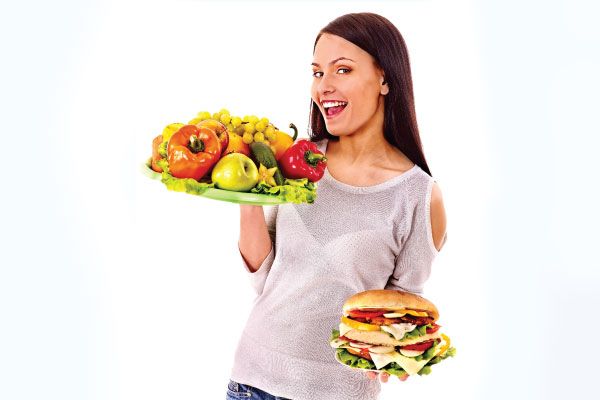 Emotional eating (or stress eating) is using food to make yourself feel better or eating to satisfy emotional needs rather than physical hunger. Occasionally using food as a pick-me-up, a reward or perhaps to celebrate, is not a bad thing. But when eating is your primary emotional reaction, you may find you’re eating without thinking, tucking into chocolate, ordering a pizza or opening the refrigerator door when you are bored or lonely or after an exhausting day. Keep up with this same attitude and you are in danger of falling into a cycle of unhealthy eating where the real problem is never solved.
Emotional eating (or stress eating) is using food to make yourself feel better or eating to satisfy emotional needs rather than physical hunger. Occasionally using food as a pick-me-up, a reward or perhaps to celebrate, is not a bad thing. But when eating is your primary emotional reaction, you may find you’re eating without thinking, tucking into chocolate, ordering a pizza or opening the refrigerator door when you are bored or lonely or after an exhausting day. Keep up with this same attitude and you are in danger of falling into a cycle of unhealthy eating where the real problem is never solved.
Sometimes it is hard to distinguish between physical and emotional hunger. Check out these signs:
• Emotional hunger isn’t located in your stomach, it is in response to your feelings, while physical hunger will manifest in physical signs such as headache, stomach grumbling, feeling weak or tired.
• Emotional hunger ends with regrets while physical hungers ends with feeling good that you are taking care of your body’s health.
• Emotional hunger tends to induce a craving for specific high-calorie or high-carbohydrate foods, such as chocolate or pizza; while if you’re hunger is physical, then any food sounds good.
• Emotional hunger is not satisfied once you are full — you keep on eating until you are stuffed. On the other hand, physical hunger doesn’t mean you need to be stuffed, you are satisfied once full.
Are you an emotional eater?
Do you eat when you are feeling stressed?
Do you eat when you are not hungry?
Do you eat to feel better?
Do you reward yourself with food?
Do you eat until you have stuffed yourself?
Simple strategies to help deal with fake hunger or emotional eating.
• Take five minutes before you give in to a craving.
• Before eating, learn to ask yourself “Why am I am eating?” Use the HALT acronym (Hungry or Angry or Lonely or Tired?) — this question will let you understand your trigger and whether your hunger is physical or emotional.
• Learn to accept your feeling and how to deal with it
For example:
If you are depressed or lonely or exhausted or anxious, get active; do something instead of just eating, take a bath, watch a comedy show, read a good book, meet a friend, go shopping, etc.
• Drink a big glass of water, it will fill your stomach, plus sometimes you feel hungry because your body is dehydrated and needs water.
• Choose healthy food high in fibre and protein instead of sugary options.
In order to stop the cycle of emotional eating, you have to make a commitment to reach deep inside yourself to find a place of grit and strength. Hopefully the above reminders, done daily for at least 21 days until they become habitual, can assist you in your life journey.


































